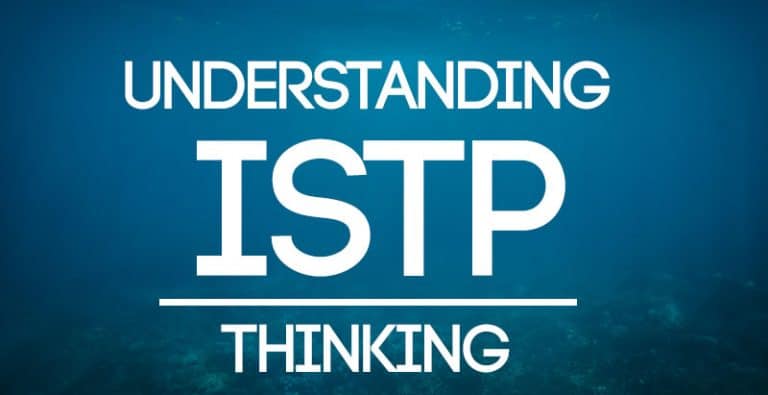The Micro-Habit That Will Improve Your Day, Based On Your Myers-Briggs® Personality Type
Sometimes it’s the tiniest habits that can make the most powerful differences in your life. In today’s article, we’ll be exploring 16 micro-habits that can improve your life, especially selected for your Myers-Briggs® personality type. Of course, any of these habits would improve your life regardless of your type, but the ones listed here are specifically chosen based on many of the common issues I’ve heard about while coaching people of every type. I hope you enjoy giving them a try and seeing how they positively impact your life!
Try to read all the micro-habits in this blog – even if they are specially selected for a particular type, they are all beneficial to anyone!

Not sure what your personality type is? Take our new personality questionnaire here. Or you can take the official MBTI® here.
Table of contents
- The ENFP – Think “There’s Nowhere Else I’d Rather Be”
- The ENTP – Remove a Distraction from Your Environment
- The INFP – Write a Short Journal Entry
- The INTP – Do One Thing You’ve Been Avoiding
- The ENFJ – Brain Dump at the End of the Day
- The ENTJ – Sit in Silence for a Few Minutes Each Day
- The INFJ – Keep a Tray of Art Supplies Out on Your Table/Desk/Shelf
- The INTJ – End Your Night with a Word of Thanks or Encouragement
- The ESFP – Dance For the Length of One Song Every Two Hours
- The ESTP – Charge Your Phone Away From the Reach of Your Bed
- The ISFP – Turn Off All Notifications For At Least One Long Block of Time Every Day
- The ISTP – Spend at Least 10 Minutes a Day in Nature
- The ESFJ – Respond to All Invitations and Opportunities with “I’ll Check My Calendar”
- The ESTJ – Try a 3-Minute Daily Review
- The ISFJ – Read Three Pages of a Book Every Night
- The ISTJ – Repeat a Personal Mantra to Yourself When You Hit Stress Points
- What Are Your Thoughts?
Estimated reading time: 15 minutes
The ENFP – Think “There’s Nowhere Else I’d Rather Be”
As an ENFP, you’re a natural explorer. The world is full of potential and possibility and you can’t wait to discover it! You’re probably always asking yourself, “What would happen if?” These questions, visions, and ideas drive you towards new discoveries, but sometimes they can leave you perpetually dissatisfied with the present. No sooner have you discovered one new idea then you move onto another. You really thrive when you take a step back and enjoy the present, with all its possibilities.
The micro-habit that will help you do this is to think, “There’s nowhere else I’d rather be.” This affirmation will help you to focus on the positive aspects of your current situation and appreciate where you are right now. You’ll also be more likely to take risks and explore new opportunities when you know that wherever you are is exactly where you’re supposed to be.
Read This Next: A Look at the ENFP Leader
The ENTP – Remove a Distraction from Your Environment
You’re a natural idea generator and it takes only a spark of inspiration for a multitude of theories to burst into your mind. This characteristic is a strength, but unnecessary distractions can derail your most important goals. You may have an innovative idea that carries real weight, but then you find yourself distracted by a new shiny thing and the idea never comes to fruition.
The micro-habit that can help you focus is to remove a distraction from your environment. This could be anything from keeping your phone in another room when you’re trying to work, to removing yourself from social media when you need to focus. It may be difficult at first, but doing this each day can help you to bring those amazing ideas to fruition with more focus and less wasted energy and distraction.
Read This Next: A Look at the ENTP Leader
The INFP – Write a Short Journal Entry
As an INFP, you’re a deep and complex individual. You likely have a rich inner life that you spend a lot of time exploring. But sometimes, your inner complexities and dreams get lost in the demands and duties you have to perform in everyday life. It’s important for you to have a quiet, focused time each day to track your dreams and inner reflections so that you can live a life that aligns with your core values.
The micro-habit that can help you do this is to write a short journal entry. This doesn’t have to be long, but it should capture your thoughts from the day without any pressure to be “perfect” or have socially acceptable ideas. Your entry could be about something that inspired you, something that made you happy, or something you’re struggling with. By writing these down each day, you’ll have a better understanding of yourself and your inner life. This can help you make decisions that are in line with your values and convictions.
Read This Next: A Look at the INFP Leader
The INTP – Do One Thing You’ve Been Avoiding
INTPs are natural analyzers. You likely have a knack for seeing the complexities in any situation and exploring solutions and possibilities. Troubleshooting, theorizing, and problem-solving come naturally to you. But sometimes small nitty-gritty tasks get in the way of your ideas and dreams. You may be putting off minor things that ultimately derail you.
Choosing to finish one “ugly” task each day can help you to stay in line with your goals. This could be something as simple as going for a morning jog, or something more challenging like asking for a raise. But don’t plan it all out. This can lead to dread the night beforehand. Simply begin your day and when the thought of the task pops into your mind, spontaneously challenge yourself to address it right away.
Read This Next: A Look at the INTP Leader
The ENFJ – Brain Dump at the End of the Day
As an ENFJ, you are naturally attuned to peoples’ needs and feelings. You likely have many demands on your time and find yourself giving constantly to others. But this can lead to feeling overwhelmed and stressed. It’s important for you to take some time each day to reflect on your day and recent weeks so that you can identify areas that need improvement or change.
The micro-habit that can help you do this is to brain dump at the end of the day. This means writing down everything that’s on your mind, no matter how small or silly it may seem. By getting it all out in black and white, you’ll be able to relax and clear your mind for bed. You may also have some “aha!” moments that you wouldn’t have had if you tried to go to bed with a cluttered mind.
Read This Next: Inspiring Morning Routines for INFPs, INFJs, ENFPs, and ENFJs
The ENTJ – Sit in Silence for a Few Minutes Each Day
ENTJs are natural leaders. You likely have a lot of ambition and drive, and you’re always looking for ways to improve yourself and your surroundings. But this can lead to feeling constantly on the go, never taking the time to just sit and recharge and regroup. It can also lead to physical tension and stress.
The micro-habit that can help you find inner peace amidst the busyness is to sit in silence for a few minutes each day. This could be first thing in the morning, last thing at night, or right after lunch! The important part is that you’re sitting without any distractions and simply letting your mind be. You may find that during this time, you’ll have insights or ideas about how to improve yourself or your life. Or you may simply enjoy the peace and quiet. Focus on your breathing during this time; breathing deeply can decrease stress, relieve pain, improve immunity, lower your blood pressure, and improve your digestion.
Read This Next: What ENTJs Do When They’re Stressed Out
The INFJ – Keep a Tray of Art Supplies Out on Your Table/Desk/Shelf
As an INFJ you have a rich inner world just waiting to be realized through creative expression. But sometimes all of your thoughts and insights can feel overwhelming, and you need a way to express them that doesn’t involve words.
The micro-habit that can help you access your creative side is to keep a tray of art supplies out on your table/desk/shelf. This could be anything from paints and brushes to modeling clay and pipe cleaners. When you feel overwhelmed or stuck, take a few minutes to play with the materials on the tray. See what happens when you start mixing colors or combining shapes. You may be surprised at the insights and ideas that come to you when you’re tapping into your creative side!
Read This Next: 24 Signs That You’re an INFJ, the Mystic Personality Type
The INTJ – End Your Night with a Word of Thanks or Encouragement
INTJs are independent, logical problem-solvers. You likely have a strong sense of self-discipline and crave a sense of control in all areas of your life. However, sometimes you’re so absorbed in tasks, ideas, and analysis that you forget about the relationships that matter most to you. Over time you can feel depleted, lonely, or unsupported in the relationship department of your life.
The micro-habit that can help you feel connected and supported is to end your night with a word of thanks or encouragement. This could be to a partner, friend, or family member. Thank them for being in your life, tell them you love them, or simply say something kind and empathetic. It might feel silly. After all, they say that “actions speak louder than words.” But everyone has different ways of feeling cared for; and for many, words of affirmation are the very thing that make them feel cared about. Going to bed with a supportive exchange of words can help you and a person in your life to feel relaxed, seen, and supported.
Read This Next: 21 Hobbies That INTJs Love
The ESFP – Dance For the Length of One Song Every Two Hours
As an ESFP, you love to be active and inspired in the moment. You’re probably very social and have a lot of friends. But this can also lead to overextending yourself and not taking enough time for yourself. You may have days where you feel cooped up, overburdened, or stressed.
The micro-habit that can help you find balance is to dance for the length of one song every two hours. Make a playlist of inspiring or uplifting songs specifically for these intervals. Dancing is a great way to get your energy moving and to de-stress while getting a boost of feel-good endorphins. It can also help you connect with others in a fun and spontaneous way. So when you feel like you need a break from work, monotony, or the anxieties of life, put on your dancing shoes and let loose!
The ESTP – Charge Your Phone Away From the Reach of Your Bed
As an ESTP, you’re a go-getter who loves new challenges and experiences. You’re probably also very active and enjoy being physically and mentally stimulated. However, this can lead to taking on too many tasks at once and not giving yourself time to rest and rejuvenate. This can manifest as feeling chronically tired, stressed, or burnt out.
The micro-habit that can help you take better care of yourself is to charge your phone away from the reach of your bed. This means keeping it in a different room or on a different level of the house than where you sleep. It might seem like an inconvenience, but it’s worth it to protect your sleep and relaxation time. When your phone is out of sight and out of mind, you’re less likely to be tempted to get up in the middle of the night to check it or respond to notifications. And that means you’ll be able to get more restful, restorative sleep.
The ISFP – Turn Off All Notifications For At Least One Long Block of Time Every Day
As an ISFP you have a rich inner world and the ability to be creative and profound. However, you often take on too much of the needs and inner emotional ordeals of the people around you. You are at your best when you can be in touch with your core self and the natural world around you. Immersing yourself in the textures, tastes, and sights of life gives you joy. But multi-tasking can be a tremendous drain; pulling you away from contemplation and joyful experience.
The micro-habit that can help you find more peace and stillness is to turn off all notifications for at least one long block of time every day. This means no email, no text messages, no social media notifications, etc. During this time, you’ll focus on being fully in the moment and taking care of yourself. You might read, write, take a walk, or simply relax and enjoy your surroundings. But the key is to completely disconnect from the digital world and allow yourself to be still and at peace.
Read This Next: 24 Signs That You’re an ISFP, the Virtuoso Personality Type
The ISTP – Spend at Least 10 Minutes a Day in Nature
As an ISTP, you’re an improviser who enjoys hands-on experiences and activity. You like to be able to take life at your own pace and figure out how things work. You thrive when you feel like the boundaries around you are giving way and you’re free to explore, create, and go with the flow. However, modern life doesn’t often allow this. Many times you’re stuck in an office, confined to the computer, or getting stuck in the cycle of doom-scrolling that all of us find ourselves trapped in.
The micro-habit that can help you feel well and truly alive is to spend at least 10 minutes a day in nature. This could be a forest, a garden, the beach, or anywhere you feel drawn to. During this time, you’ll focus on simply taking in your surroundings. Notice the colors, the smells, the sounds. Let your mind wander and see where it takes you. Climb a tree, hike a mountain (this will take more than ten minutes, of course), grab a fishing pole and see if anything bites! The key is to let go, be in the moment, and absorb all that nature has to offer.
Read This Next: The Top 7 Gift Ideas for ISTPs
The ESFJ – Respond to All Invitations and Opportunities with “I’ll Check My Calendar”
As an ESFJ, it’s your natural inclination to meet the needs of the people around you. If someone asks you for help or to add something to your already-busy schedule, your knee-jerk response is to say “yes.” You want to be seen as someone who is helpful and accommodating, and you take great pride in being able to do many things well. However, this can lead to feeling over-extended and spread thin. You sometimes find yourself taking on too many commitments or obligations, and not having enough time for yourself.
The micro-habit that can help you find more balance is to respond to all invitations and opportunities with “I’ll check my calendar.” This means that you’ll take a moment to think about whether or not you’re able to commit to the request. It doesn’t mean saying no outright, but it does give you some time to reflect and see if the commitment is one that aligns with your long-term goals and personal values. It also allows you to be more selective with the invitations and opportunities that you say “yes” to, and to ensure that you’re not over-committing yourself.
The ESTJ – Try a 3-Minute Daily Review
As an ESTJ, it can be easy to go to bed at night thinking about all the things you have to do the next day. Over time, this can lead to difficulty sleeping or pressure and stress rather than relaxation. As a natural doer, you tend to lead a busy and high-pressure life. But at night, it’s crucial for you to make time to decompress and get into a calm, peaceful mindset.
The micro-habit that can help you do this is to try a 3-minute daily review. This means taking some time each night to reflect on the day that just passed. What went well? What are three wins you can be grateful for? What were your successes? What were your failures? What can you learn from all of this? What are you thankful for? This simple practice can help you to cultivate a more positive mindset and to tie up any loose-ends so that you can go to sleep feeling relaxed and calm. Write down any significant insights that came to you during this process.
The ISFJ – Read Three Pages of a Book Every Night
As an ISFJ, you’re someone who enjoys being around people and taking care of others. You’re loyal, supportive, and often generous. You probably have a lot of responsibilities, both at home and at work. And because you’re so focused on taking care of others, you may find it difficult to take time for yourself. Underneath all your supportive habits, you have an imagination that longs to breathe.
The micro-habit that can help you find more balance is to read three pages of a book every night. This may seem like a small amount, but it’s a way for you to take some time for yourself and relax while sparking your imagination. It’s also a way for you to learn new things and to grow as a person. Choose a book that interests you, and make it a goal to read at least three pages every night before bed.
Read This Next: A Look at the ISFJ Leader
The ISTJ – Repeat a Personal Mantra to Yourself When You Hit Stress Points
As an ISTJ, you’re someone who takes your responsibilities very seriously. You’re a natural problem-solver, and you often have a plan for everything. You’re probably very organized and efficient, and you like to be in control of your life. Underneath all this, you may feel a lot of pressure to be perfect.
The micro-habit that can help you manage stress is to repeat a soothing mantra anytime you feel your stress levels starting to rise. It could be as simple as “This too shall pass,” or “I am stronger than I think.” Comforting phrases like “I am not alone” or “Even now, my mind is free” can also work well. Repeat the mantra to yourself several times, and allow yourself to relax into it. Breathe deeply, in through your nose for six seconds, holding for several seconds, then out through your mouth. Clench and unclench your fists, and release any tension you may be feeling.
Read This Next: The ISTJ Leader
What Are Your Thoughts?
Do you have a favorite micro-habit that helps you manage stress or stay on track? We would love to hear about it! Please share in the comments below. And if you found this article helpful, please be sure to share it with your friends and family. Thanks for reading!
Find out more about your personality type in our eBooks, Discovering You: Unlocking the Power of Personality Type, The INFJ – Understanding the Mystic, The INTJ – Understanding the Strategist, and The INFP – Understanding the Dreamer. You can also connect with me via Facebook, Instagram, or Twitter!








I was intp but I’ve done my arts and I love being the best of it too if school projects weren’t about spending too on other subjects I can be a good credibility source by itself. Thesis can eat you alive anyway if you are not careful.now a INTJ being the apathetic type is good either but being a artist I hope helps with that.
I absolutely love this article and the list. So easy to implement and the rewards seem much more significant than the actual tasks. Thank you!!!
It was a worth read. I ain’t nuch familiar with the terms INTJ, INFP, etc. But this article was helpful and I spent good time reading this.
I’m an ISTJ, YES! Right on point! It read me like a book so to speak! lol 😆
I’m an ISFP and I found the tip about turning off notifications so helpful. I just got a new work from home job where clients call me on my personal phone. Not getting the notifications at night really helped my stress level. I also took my phone and messages apps off my Home Screen, so I don’t automatically see them, which was also huge.